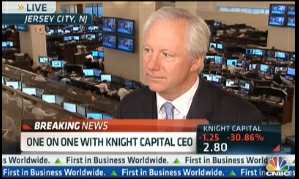President Obama Cracks up Correspondents
/After making an entrance to rap music, President Obama started the 2013 White House Correspondents' Dinner with the usual banter: "I look in the mirror and say, 'I'm not the strapping young Muslim Socialist that I used to be.'"
Here are a few more highlights from the president's speech: 
- Joking about his diminishing basketball skills: "I took 22 shots, made two of them. Two hits, 20 misses. The executives at NBC asked, 'What's your secret?'"
- Considering ways to increase his popularity, the president showed a series of photos sporting Michelle-like bangs.
- Poking fun at CNN: "I know CNN has taken some knocks lately, but the fact is, I admire their commitment to covering all sides of the story, just in case one of them happens to be accurate."
- Commenting on ads by the Las Vegas Sands Corporation CEO: "Did you know that Sheldon Adelson spent $100 million of his own money last year on negative ads? You've got to really dislike me to spend that kind of money. I mean, that's Oprah money. … Sheldon would have been better off offering me $100 million to drop out of the race. I probably wouldn't have taken it, but I'd have thought about it. Michelle would have taken it."
- Reacting to his relationship with the Republicans: "Some folks still don't think I spend enough time with Congress. ‘Why don't you get a drink with Mitch McConnell?' they ask. Really? Why don't you get a drink with Mitch McConnell?"
Discussion Starters:
- How does the president's delivery support the tone of his speech? What, specifically, do you notice him doing during some of his jokes?
- When the president switches to a serious tone, how does his delivery change? Again, what do you notice in his voice tone, gestures, facial expressions, and so on?








